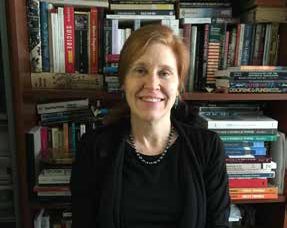-
Bill Derman Enjoys a Productive Retirement
Dr. Bill Derman retired from MSU in 2006, but has hardly slowed down. In fact, since moving to Norway and joining the faculty at the Norwegian University of the Life Sciences (NMBU) in the Department of International Environment and Development Studies (Noragric), his academic life has flourished. He’s started new collaborative projects and published prolifically […]
-
Alumnae Feature: Dr. Sue Schneider
Dr. Sue Schneider’s career as an applied anthropologist has brought her new opportunities to learn and allowed her to impact the lives and well being of the communities in which she has lived and worked. Her interests have always included community health, prevention and health promotion, and her dissertation research at MSU reflected those interests: […]
-
Update from the Graduate Students of Anthropology
The Graduate Students in Anthropology (GSA) is a student-run organization with the goal of fostering community and academic opportunity among graduate students in the department. Caitlin Vogelsberg, GSA treasurer, summarizes the past year’s accomplishments. The GSA has continued to focus on providing academic support for anthropology graduate students. We awarded two more $100 Academic Enhancement […]
-
Undergraduate Updates
Undergraduates Present Research Anthropology undergraduates presented their excellent research in the form of poster presentations at the 2017 University Undergraduate Research and Arts Forum (UURAF). This is a university-wide event focused on highlighting unique and creative research endeavors of undergraduates across disciplines. Students at UURAF are mentored by faculty, and have the opportunity to present […]
-
Adjunct Feature: Dr. Terry Martin
Dr. Terry J. Martin joined the MSU Department of Anthropology as an Adjunct Professor in 2016 shortly after his retirement from the Illinois State Museum where he had been a Curator for 31 years. He completed his PhD. in archaeology from MSU in 1986 under the direction of Dr. Charles Cleland. A Michigan native, Dr. […]
-
Featured Graduate Student: Nerli Paredes Ruvalcaba
Nerli Paredes Ruvalcaba is a second-year graduate student who received an NSF Graduate Research Fellowship last year and is now preparing to conduct her pre-dissertation research. Nerli was awarded support to participate in the NSF diversity program, IDEAS, which she describes below. I first became interested in anthropology as an undergraduate at the University of […]
-

Featured Faculty: Dr. Beth Drexler
Dr. Beth Drexler has been very research active recently, thanks to an American Institute for Indonesian Studies Luce Fellowship (2014-2016) and a Fulbright (2015-2017). Her current project explores human rights and memories of violence in the aftermath of authoritarian rule in Indonesia and Timor-Leste (known as East Timor during its occupation by Indonesia). Her next […]
-
NEW Alumni & Friends Fund for Archaeology
The Department of Anthropology is proud to announce the creation of The Alumni and Friends Expendable Fund for Archaeology. The purpose of this fund is to target the needs of MSU archaeology students at the undergraduate and graduate levels and enhance the visibility of MSU’s archaeology program at home and abroad. Through the funds accumulated […]
-
Message from the Chair: Dr. Jodie O’Gorman
Welcome to the Spring 2017 newsletter! As usual, there is a lot going on at this time of the year. I am happy to announce that we have hired Dr. Fredy Rodriguez as our new teaching professor. He will be an important link to new undergraduate majors, mentor teaching assistants, and bring a strong interest in […]
-
The Biomarker Laboratory for Anthropological Research
In 2011 Dr. Masako Fujita founded the Biomarker Laboratory for Anthropological Research, where she and her students could conduct cutting edge anthropology research using biomarkers: measurable biochemical substances in bodies that can indicate various aspects of health. Recent grants from the Wenner-Gren Foundation and the National Science Foundation are funding two separate projects that together […]